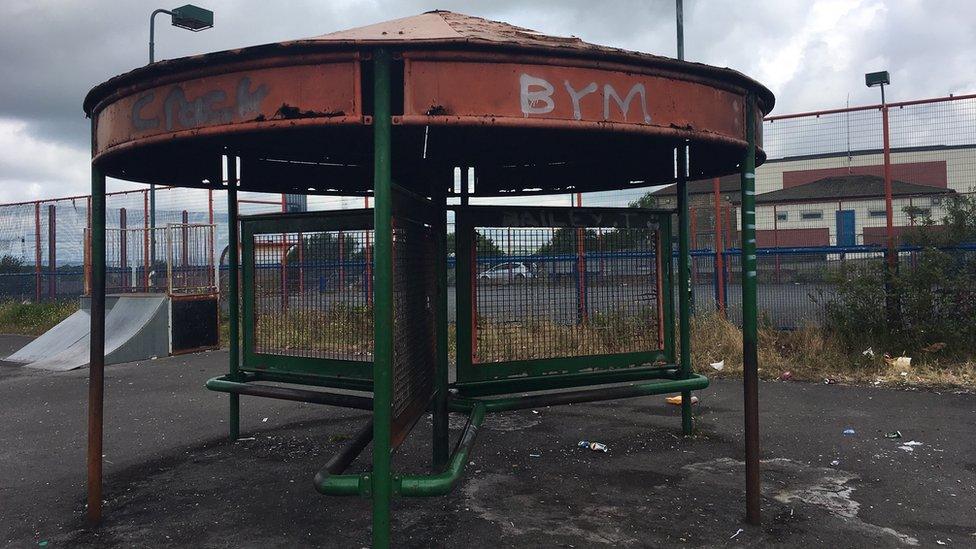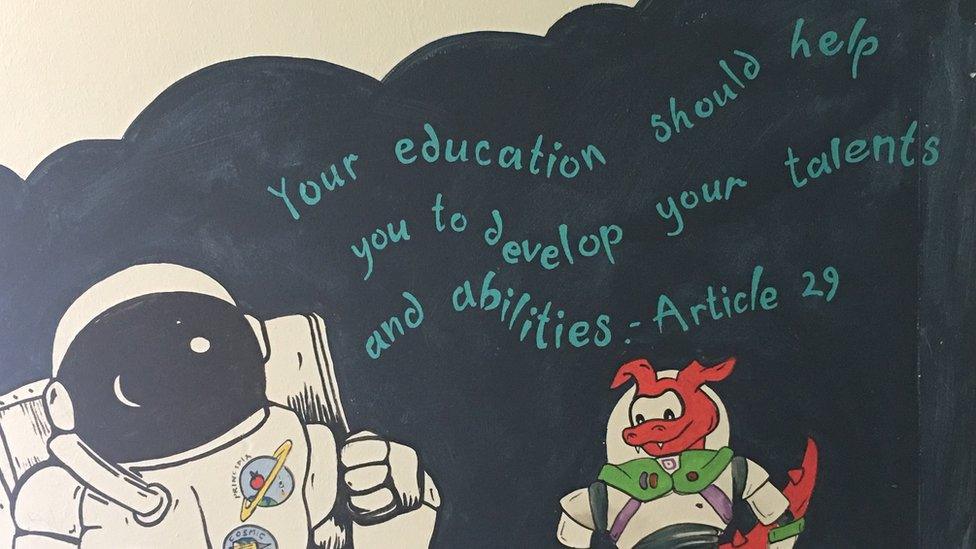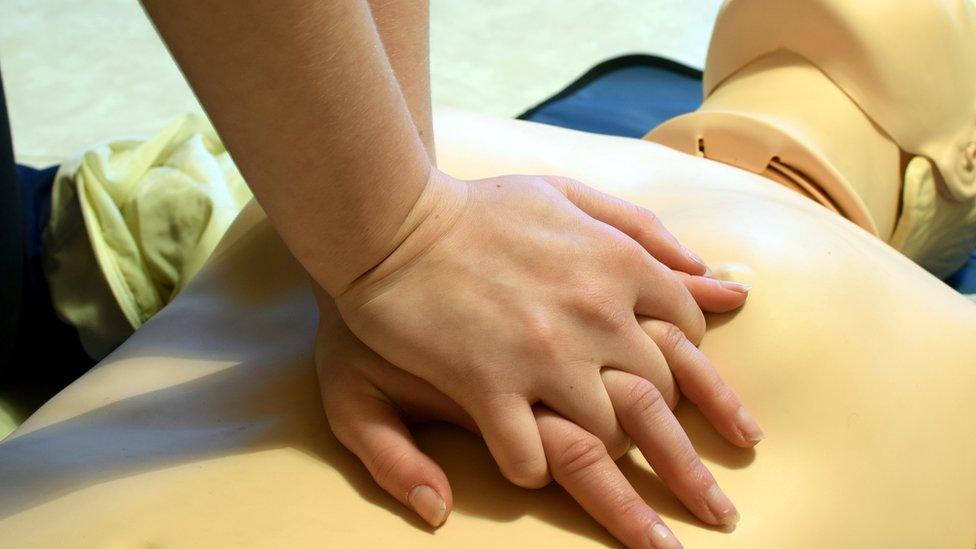Education: New school curriculum 'could widen achievement gap'
- Published
- comments

Blaenymaes is among the most deprived areas in Swansea, according to the 2014 Welsh Index of Multiple Deprivation
Almost two-thirds of teachers at schools that have trialled Wales' new curriculum feel it will not benefit poorer pupils, a survey has suggested.
Only 30% of 600 teachers at "pioneer schools" surveyed by Cardiff University thought it would be beneficial.
However, 64% of 204 teachers at schools with higher numbers of deprived pupils felt it would help them.
Education Minister Kirsty Williams said the new curriculum would "make learning relevant to them".
The new curriculum focuses on six areas including maths and numeracy, languages, literacy and communication, and expressive arts.
It is out to consultation until 19 July, with the final version due to be published in January ahead of a 2022 rollout in primary schools, followed four years later in secondary schools.
Nigel Newton from the Wales Institute of Social and Economic Research at Cardiff University told BBC Eye On Wales: "This is shocking. What we don't want is for there to be a situation in 10 years' time, where pupils in some schools leave just not knowing the things other pupils know.
"This new curriculum could actually exacerbate the segregation within schools between different groups of pupils."

Last year there were almost 65,000 children aged five to 15 in Wales on free school meals
Only 32% of pupils eligible for free school meals achieve five or more GCSEs at grade C or above - including English and maths - compared to 64% of those who are not eligible.
Pupil development grants were introduced in 2016, giving schools extra funds based on the numbers of pupils they take in with free school meals.
Ms Williams said: "I don't think the size of your parents' pay cheque should determine your educational destiny and we have to take steps to address that."
Dr Newton said evidence showed engaging parents, supporting transition from primary to secondary school and moving away from setting pupils by ability could help close the attainment gap.
But he added: "Yet when we asked teachers in pioneer schools, those things were not forefront of their minds. They weren't planning. And that's worrying, because without planning and forethought, those things won't happen."


Education Minister Kirsty Williams said the new curriculum was about "raising aspirations, supporting teaching and developing excellence in our classrooms"
View from the classroom
Mark Dennis, who teaches at Blaenymaes Primary School in Swansea said: "If we're going to close the gap, now is the time with the new curriculum, to think why is the gap there, why hasn't what we've done before worked to close that gap, and what can we do now to make a difference.
Dale Duddridge, a teacher at Maesteg Comprehensive School in Bridgend county, said: "I think it can be a dangerous notion to think that schools will use this curriculum as an excuse to dumb down and have lower aspirations for children from deprived areas. I passionately believe the opposite will happen."
Eye On Wales, 17 July, 18:30, BBC Radio Wales and BBC Sounds
- Published10 July 2019

- Published19 June 2019

- Published29 April 2019

- Published10 January 2019
